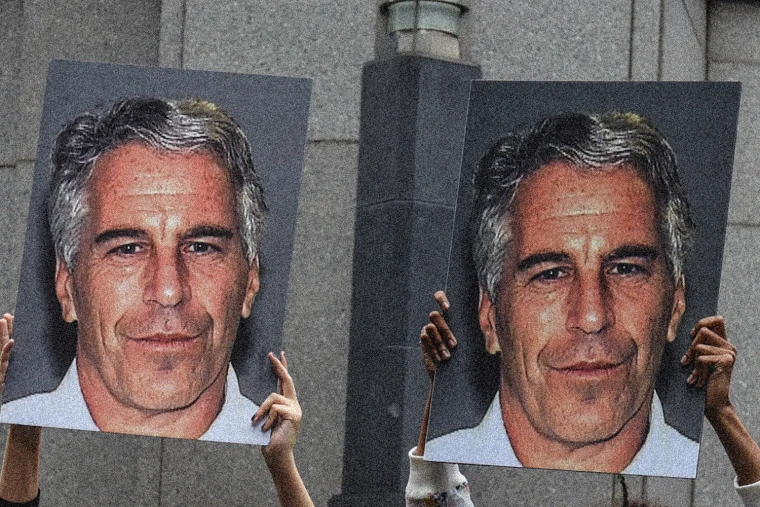In a charged week in Washington, survivors of Jeffrey Epstein’s abuse, alongside bipartisan lawmakers, have intensified their efforts to force the release of all government files related to the late financier and convicted sex offender. The movement, driven by a discharge petition in the House, aims to compel the Justice Department to make public all unclassified documents tied to Epstein’s investigations. However, political resistance, particularly from the White House, and uncertainty in the Senate have cast doubts on whether these files will see the light of day.
Survivors Demand Transparency
On September 3, 2025, Epstein’s accusers gathered on the steps of the U.S. Capitol, sharing emotional accounts of their abuse and urging Congress and President Donald Trump to act. “Unless we learn from this history, monsters like Epstein will rise again,” said Chauntae Davies, one of the survivors, during a news conference. She questioned why Ghislaine Maxwell, Epstein’s associate, was the only one held accountable when others allegedly played a role. The group, supported by organizations like Stand With Survivors, emphasized that releasing the files is critical to uncovering the truth about Epstein’s network and why he evaded justice for so long.
Anouska De Georgiou, another survivor, called the Epstein Files Transparency Act a necessary step to end secrecy around abuses of power. “The only motive for opposing this bill would be to conceal wrongdoing,” she told lawmakers. The survivors’ presence marked a historic moment, as noted by attorney Sigrid McCawley, who said it was the first time congressional leaders had paused to hear directly from Epstein’s victims.
The Discharge Petition and House Dynamics
Leading the charge in the House are Reps. Thomas Massie (R-Ky.) and Ro Khanna (D-Calif.), who are spearheading a bipartisan discharge petition to force a vote on the Epstein Files Transparency Act. The petition needs 218 signatures to succeed, and as of early September 2025, it has garnered 215, including support from three conservative Republican women: Reps. Nancy Mace (S.C.), Marjorie Taylor Greene (Ga.), and Lauren Boebert (Colo.). Khanna praised these women as “very courageous” and noted ongoing talks with about 13 other Republicans to secure the final signatures.
The petition’s fate may not hinge solely on Republican support. Upcoming special elections in Virginia and Arizona to replace the late Reps. Gerry Connolly and Raul Grijalva, respectively, are expected to seat Democrats who could sign the petition, potentially pushing it over the 218 threshold. The petition remains active until the end of the 119th Congress in January 2027, giving advocates time to build support.
However, GOP leaders argue the petition is misguided, warning it could expose victims who wish to remain anonymous. They point out that the House Oversight Committee is already investigating the matter and has released over 33,000 pages of Epstein-related documents, though much of this information was already public.
Senate Uncertainty and White House Resistance
Even if the House secures enough signatures, the Senate remains a significant hurdle. Rep. Victoria Spartz (R-Ind.), who attended the survivors’ news conference, expressed skepticism about the petition’s chances in the Senate, citing its politicized nature. She indicated she’s still gathering information before deciding whether to sign.
Behind the scenes, the White House has actively worked to quash the petition, particularly targeting the Republican women who have signed on. A Trump adviser, speaking anonymously, claimed the effort is a Democratic ploy to distract from the president’s achievements, despite bipartisan support for the files’ release. President Trump himself dismissed the issue as a “Democrat hoax” during a September 3 Oval Office meeting, comparing it to ongoing debates over John F. Kennedy’s assassination files. He insisted the Justice Department has already handled the matter adequately, noting that thousands of pages have been released.
Trump’s Connection and Political Fallout
Epstein’s case remains a sensitive issue for Trump, who socialized with the financier years ago. During his 2024 campaign, Trump suggested he might release more files if re-elected, but since taking office in January 2025, his administration has disappointed some supporters by releasing little new information. Speculation about a supposed “client list” used by Epstein for blackmail has fueled conspiracy theories, though the Justice Department and FBI have denied its existence.
Survivors like Haley Robson, a registered Republican, stressed that their push for transparency is not political. Robson even invited Trump to meet with her to discuss the issue, underscoring the survivors’ determination to keep the focus on justice and accountability.
What’s Next?
The Epstein Files Transparency Act represents a critical opportunity to shed light on a dark chapter in American history. With the House nearing the signature threshold and survivors amplifying their voices, pressure is mounting for action. However, Senate resistance and White House opposition could stall progress. As Rep. Marjorie Taylor Greene considers reading a list of Epstein’s alleged accomplices on the House floor, the fight for transparency continues to stir debate, with the outcome uncertain but the stakes undeniably high.








